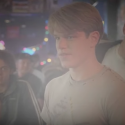There is something compelling and disturbing about the case of Rachel Dolezal, the white woman who successfully passed at being black – so successfully that she headed up the Spokane, Washington chapter of the NAACP, before her parents outed her as white.
Let’s ignore the personal aspects of the story. The inevitable made-for-TV movie will cover this – the admittedly fascinating question of why did she do it? Even more compelling is the public reaction to her trickery. If Dolezal’s successful passing as black offers little more than a textbook truism that race is a social construct, the outrage and confusion that followed, once her trickery was uncovered says far more about the nature of racial politics.
The first thing to note is how messed up this form of politics is. A lot of black commentators are angry because, by claiming blackness, Rachel Dolezal took away speakerhood positions from black people. This is true and this is depressing. I’m reminded of my research a few years ago into US Jewish supporters of Palestine. I once interviewed the head of a local Jewish Voice for Peace (JVP) chapter – a thoughtful and very funny woman. About twenty minutes into the interview – I started asking her about her Jewish background. She laughed and told me she wasn’t Jewish, why did I think she was?
That floored me and I asked her awkwardly, well… why are you in a group like Jewish Voice for Peace then? Her reply was to tell me to be realistic, that she’d be taken much more seriously if she spoke – not as a Jew (which she never pretended she was) but as someone representing Jews. I couldn’t deny that reality. In the US, perhaps more than elsewhere, the claim to ethnic representativeness bolsters one’s claims, whatever these claims may be. Small wonder that other people than Rachel Dolezal ground their positions on this claim. Small wonder too that these people have reacted so angrily to her undermining their credibility to speak from ethnic personhood.
There is something fundamentally wrong about a form of conversation where your ability to speak – or rather, to be heard – is to a large extent predicated on your ethnic origin. I’m not slagging off the NAACP or black activists for this – they didn’t create this system and are merely trying to manoeuvre their way through it. This is known as strategic essentialism – the way that oppressed groups essentialise their identity for strategic reasons – in order to coalesce as a group and to provide a platform from which to fight these oppressions. This type of identity politics may well be the least bad option when fighting racial discrimination. But the question arises if some of the anger directed against Dolezal is because unwittingly, she exposed the pretences underpinning this strategic essentialism – the nakedness of this particular emperor.
For say what you like about Rachel Dolezal, but she has unsettled the easy racial categories. It’s disheartening to see article after article snarkily praising her for her hair, as if that was it. As if, once we can isolate and fix the feature that allowed her to be black – it was her hair – then the problem is solved and we can re-erect the racial barriers that keep us secure, if not safe. The problem is that it was no one feature, not her hair, nor her skin colour, nor her political claims which allowed her to be black. It was that she performed being black as well as any other black person. Recall, she wasn’t found out by her fellow black activists. If her mom hadn’t told on her, she could still be black today.









